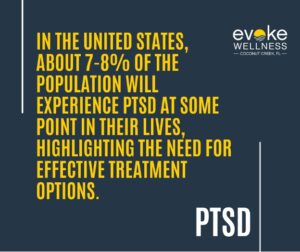DMT, or Dimethyltryptamine, is a powerful psychedelic substance that has garnered significant attention in recent years. Known for its intense and short-lived effects, DMT is often referred to as the “spirit molecule” due to the profound and mystical experiences it can induce. This article explores what DMT is, its effects, and its potential therapeutic applications. We will also discuss related topics such as ecstasy abuse rehab, dual diagnosis treatment, intensive outpatient programs, depression treatment, meditation therapy programs, and PTSD treatment programs.
- Chemical Nature: DMT is a naturally occurring tryptamine compound found in various plants and animals.
- Psychedelic Effects: It is known for inducing powerful hallucinations and altering perceptions of reality.
- Historical Use: Traditionally used in shamanic rituals in South America, particularly in the form of Ayahuasca.
If you or a loved one is struggling, help is available today. Call (833) 969-3318 to speak with our compassionate team, or reach out online and schedule an appointment to begin a healing journey.
How is DMT Consumed?
- Methods of Use: DMT can be smoked, vaporized, injected, or ingested orally when combined with a monoamine oxidase inhibitor (MAOI), such as in Ayahuasca.
- Duration of Effects: When smoked or vaporized, the effects are almost immediate and last for about 5-30 minutes. Oral ingestion extends the experience to several hours.
Effects of DMT
- Psychological Effects: Users often report intense visual and auditory hallucinations, a sense of euphoria, and profound changes in perception.
- Physical Effects: Increased heart rate, elevated blood pressure, and rapid eye movements are common.
- Subjective Experiences: Many describe encounters with entities, a sense of leaving the body, or entering other dimensions.
Therapeutic Potential of DMT
- Depression Treatment: Emerging research suggests that DMT could have antidepressant effects, providing rapid relief for some individuals.
- PTSD Treatment Program: Studies indicate that DMT may help in processing traumatic memories and reducing symptoms of PTSD.
- Dual Diagnosis Treatment: DMT’s ability to alter perceptions and emotions might benefit those with co-occurring mental health disorders and substance abuse issues.
DMT and Mental Health Programs
Ecstasy Abuse Rehab
- Challenges: Both DMT and MDMA (ecstasy) are powerful psychoactive substances that can lead to misuse and psychological dependence.
- Rehabilitation Approaches: Comprehensive rehab programs, including ecstasy abuse rehab, often incorporate medical detox, therapy, and aftercare planning.
Dual Diagnosis Treatment
- Complex Needs: Individuals with a dual diagnosis of substance abuse and mental health disorders require integrated treatment approaches.
- Treatment Strategies: Combining psychiatric care with substance abuse treatment, such as through intensive outpatient programs, is essential for effective recovery.
Intensive Outpatient Program (IOP)
- Flexibility and Support: IOPs provide a structured yet flexible treatment option, allowing individuals to maintain daily responsibilities while receiving intensive therapy.
- Therapeutic Components: These programs often include individual therapy, group sessions, medication management, and holistic therapies.
Depression Treatment
- Medication and Therapy: Depression treatment programs may use a combination of antidepressants and psychotherapies such as cognitive-behavioral therapy (CBT).
- Innovative Therapies: Emerging treatments, including psychedelic-assisted therapy, are being explored for their potential benefits in treating depression.
Meditation Therapy Program
- Mindfulness Practices: Meditation therapy programs focus on mindfulness and stress reduction techniques to improve mental well-being.
- Benefits: Regular meditation can reduce symptoms of anxiety and depression, enhance emotional regulation, and improve overall quality of life.
PTSD Treatment Program
- Comprehensive Care: PTSD treatment programs often combine psychotherapy, medication, and supportive therapies to address the complex symptoms of PTSD.
- Emerging Therapies: Psychedelic-assisted therapy, including the use of DMT, is being investigated for its potential to help individuals process trauma more effectively.
Statistics on DMT Use and Mental Health
- Prevalence: According to a Global Drug Survey, approximately 9% of respondents reported having used DMT at least once.
- Mental Health: Studies show that 1 in 13 people worldwide suffer from anxiety disorders, and nearly 300 million people are affected by depression.
Conclusion
DMT is a powerful psychedelic that holds potential for therapeutic use, particularly in the fields of depression treatment, PTSD treatment programs, and dual diagnosis treatment. While its use remains controversial and requires further research, the integration of psychedelic substances into mental health care could revolutionize traditional treatment approaches. Programs such as ecstasy abuse rehab, intensive outpatient programs, and meditation therapy programs can provide comprehensive care and support for individuals struggling with mental health and substance use disorders. As we continue to explore the benefits and risks of DMT, it is crucial to prioritize safe, controlled environments and professional guidance to maximize therapeutic outcomes.
Begin Your Journey With Evoke Wellness at Coconut Creek
Evoke Wellness at Coconut Creek is a full-service addiction and Mental Health treatment facility serving Florida residents. We base each of our programs on the individual’s severity of symptoms and use a combination of evidence-based therapies and holistic approaches to address the needs and recovery goals of the patient.
If you or a loved one is struggling, help is available today. Call (833) 969-3318 to speak with our compassionate team, or reach out online and schedule an appointment to begin a healing journey.



